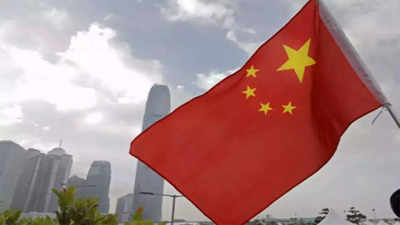
BEIJING: China’s economic expansion fell in the second quarter not seen since early 2020, an AFP survey of analysts found, due to painful Covid lockdowns and lingering weakness in the real estate sector.
Leaders of the world’s second-largest economy remain firmly committed to a zero-Covid approach of flushing out clusters, but the result has stunted growth and left policymakers’ annual target of around 5.5 per cent unreachable.
The recession comes after the country’s largest city Shanghai was shut down for two months over a resurgence of the virus – shutting down supply chains and shutting down factories – while dozens of others floundered from tighter rules to fight local outbreaks. struggle.
According to an AFP survey of experts from 12 financial institutions, GDP is projected to grow 1.6 percent year-on-year in April-June.
Many analysts expect the economy to shrink on a quarterly basis – for the first time since 2020 at the height of the pandemic.
In line with leading indicators, activity in both the services and manufacturing sectors contracted in April and May, said Teuwe Mavisen, senior macro strategist at Rabobank.
China’s property sector, a key economic driver, was also “still in limbo”, while the lockdown has severely affected supply and demand, he told AFP.
New home sales for the top 100 developers were down 43 percent in June, according to data from China Real Estate Information Corporation, with Nomura analysts saying metro passenger journeys in major cities remained below 2021 levels.
China has registered a GDP contraction only once in recent decades, and analysts expect the latest reading to drag full-year growth to around four percent, undercutting earlier estimates.
Economists have long questioned the accuracy of official Chinese data, suspecting that the figures are massaged for political reasons.
And Friday’s official release will be closely watched as the Communist Party prepares for its 20th Congress, when Xi Jinping is expected to be given another five-year term as president.
China’s policymakers want both zero-Covid and growth, an objective made clear during an April Politburo meeting, Macquarie economist Larry Hu said in a recent report.
Hu said officials have vowed efforts to meet this year’s target, a goal reiterated by Xi last month, and that leaders will “decide whether to double down or step back” in July.
“Rhetorically, policymakers are unlikely to drop the name ‘zero-Covid’ anytime soon,” he said. and be made less disruptive.”
Last Thursday, Premier Li Keqiang said the foundation of China’s recovery was “still shaky” and called for more work to stabilize the economy.
ANZ Research said in a report, and “many uncertainties” surround the latest rally as well.
In addition to the unpredictable Covid outbreak, which could impose more restrictions on movement, “a slowdown in the US economy and the Fed’s hiking moves could bleak the outlook for China’s exports,” ANZ said.
Domestically, consumer inflation rose to the highest level in two years in June as pork prices rose, official data showed on Saturday, threatening relative stability from a global jump in food prices.
Tommy Wu, chief economist at Oxford Economics, said China’s economy has started to recover after the lifting of lockdown restrictions in Shanghai from June 1.
But even if future outbreaks become less disruptive as officials fine-tune their strategies, “consumption will remain under pressure”, he said.
This week, an auto industry association slashed its 2022 sales forecast on weak demand.
“Consumer sentiment is unlikely to be optimistic as strict mobility restrictions will be imposed even if the number of COVID cases in a small neighborhood is very low,” Wu said.
FacebookTwitterinstagramKu APPyoutube